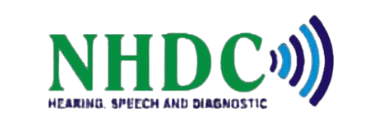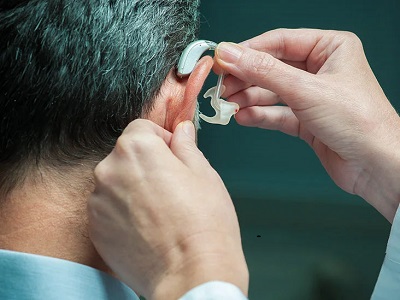Hearing aids are the most successful and widely utilised method of treatment for practically everyone who suffers from hearing loss. Outside of the most severe levels of hearing loss, the benefits to your hearing and quality of life are not to be overlooked.
However, there is a large selection of hearing aids accessible. There are numerous styles, features, and models to choose from. Your audiologist can help you choose between them, but understanding the distinctions between basic hearing aids and the more advanced varieties available can also help you find what you're searching for.
What exactly are simple hearing aids?
Even basic assistive devices have evolved significantly just a decade ago. As a result, while most still have some highly helpful functions, they are often easier to use than advanced hearing aids. They may contain manual controls, such as a dial that you crank up or down to alter the level of noise amplification, or a button that you must press to activate particular noise cancelling functions.
With so minimal controls comes a degree of inaccessibility. A computer can be used to programme basic hearing devices to multiple profiles, but those profiles do not provide the same amount of customisation as an advanced hearing aid. Furthermore, because they have fewer amplification channels, they cannot be modified to compensate for as many odd patterns of hearing loss or to negate more particular types of background noise or feedback. Similarly, they rarely use complex speech processing features, which are more commonly found in advanced hearing aids.
They are not, however, completely devoid of features. Basic hearing aids can still be equipped with directional microphones, which boost amplification of noises immediately in front of the wearer while dulling audio coming from other directions. FM capabilities are another function that is widespread in basic hearing aids. This allows the hearing aid to link to FM systems via boots, allowing users to hear sounds more directly from the FM systems rather than boosting noise travelling via the airways.
What exactly are sophisticated hearing aids?
For people with more particular needs, it's useful to be aware of some of the significant advancements in hearing aid technology during the last several years. There's a lot to like about sophisticated hearing aids, from autonomous features that allow your device to adjust to changes in the environment to boosting its capacity to recognise and enhance speech.
Advanced models cost more than basic hearing aid technology. Users can, however, benefit from a greater number of channels, with eight as opposed to the two found in basic hearing aids. As a result, distinct sound frequencies can be separated, altered, and amplified at varying levels.
They may also include advanced noise cancellation technologies such as wind cancellation and feedback removal to help you hear much more clearly. Add to that their Bluetooth wireless capabilities, which allow them to connect to a variety of modern devices such as computers, smartphones, and smart TVs, allowing sound to be streamed directly from the hearing aid rather than being amplified over the air.
Advanced hearing aids may not have as many manual options as basic devices, but they do have a higher level of digital adjustability. Many come with smartphone apps that let users to quickly switch between different listening settings. Some modern hearing aids even log usage data in order to learn about the user's preferences and to automatically transition between presets based on the noise environment.
Don't know which hearing aid is best for you?
Depending on your needs and other criteria, such as your ability to operate and use all of the capabilities of the various hearing aids, either basic or sophisticated hearing aids may be appropriate for you. Even so, you must examine the various styles, such as in-ear and behind-the-ear.
If you're unsure about which type of hearing aid is appropriate for your level of hearing loss, or whether you should have a basic or advanced hearing aid, your audiologist can help. If you want to learn more, have questions, or schedule an appointment, please contact NHDC Hearing Speech and Diagnostic

